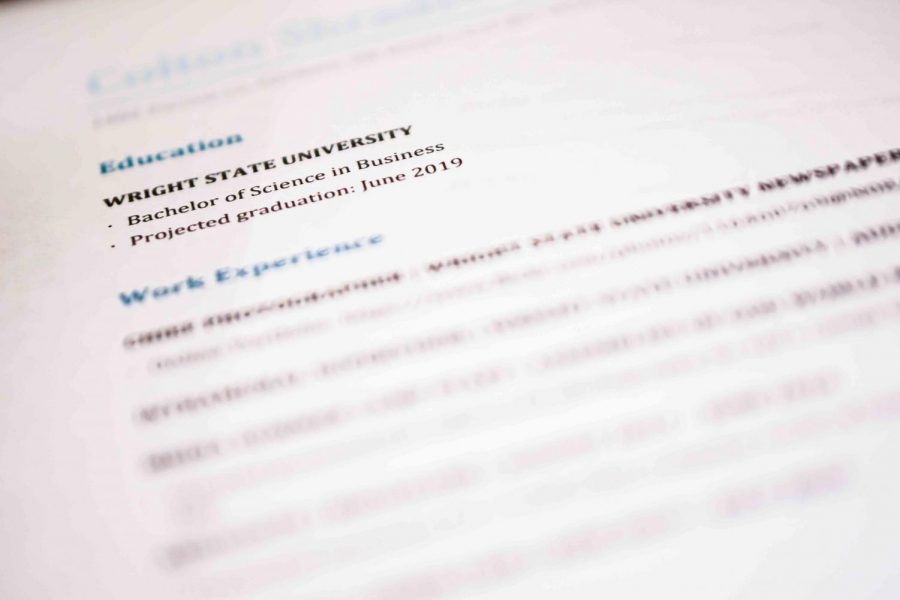
Your resume is one of the top items used by employers in a decision to hire you, so you should take every action necessary to make it the best it can be before the time comes to start handing it out to potential employers.
A good first step is to head the the Career Center in the Student Union, where you can set an advising appointment for a one on one session on resume writing, feedback, customization, proofreading and more. They often host career fairs and upload self-help articles and videos to their website.
Some of the worst things you can put on a resume, according to Lisa Duke, assistant director of the career center, include personal information such as gender, race and age and other “legally protected information” in order “to protect applicant from discrimination in the hiring process.”
This also means you should not include a photo of yourself, according to Duke.
Duke also explains that excessive graphics or color, or unprofessional fonts are a bad choice on a resume, and that listing your hobbies is probably not a good idea.
Instead you should place information that is relevant to the position in which you are applying. This can include your degree or major, skills you’ve learned in your courses, internship experience you’ve gained as well as part time jobs and large course projects.
Rather than putting everything you’ve ever done in a chronological list, Duke recommends putting the “most relevant and marketable information, in relation to a specific opportunity or to the career field you are interested in, top to bottom in reverse chronological order within each section.”
Often, using random online templates for your resume can work against you when applying for a job. “We recommend creating a resume using Microsoft Word. Resumes really don’t require fancy layouts or formatting, because employers are looking for key information in an easy to follow layout. Sometimes templates makes it hard to find what they’re looking for,” Duke explained.
There is debate over whether or not it is a good idea to include work history on a resume that is not in the field you are applying for, but Duke explains that it’s all about how you include it.
“New grads tend to have work experience not related to the field they are applying. Sharing that information on the resume tells a potential employer an applicant has highly desired soft skills: they stayed at this position for four years while pursuing a degree means a strong work ethic, they worked as a server for two years means customer service skills,” she said. “Employers value transferable skills but it’s up to the applicant to share the most relevant information and make that connection between the opportunity and experience.”
Even after graduation, you can schedule a time to speak with a career advisor about resume development, or to get feedback on your current resume.
